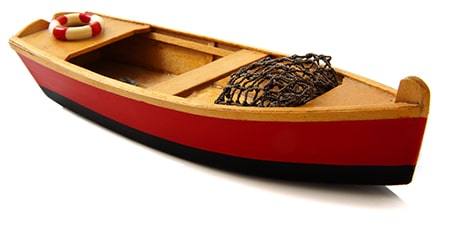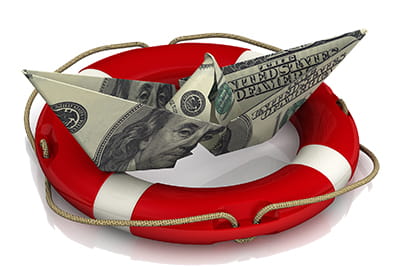Israel’s Shipping Law Update in 2024
 Israel’s shipping law has undergone significant updates in 2024, reflecting the country’s commitment to aligning its maritime regulations with international standards and addressing modern challenges in the maritime sector. This year has seen crucial legal developments aimed at promoting maritime safety, environmental protection, and efficient shipping operations. This article will explore these updates, focusing on key legislative changes and new sewage pollution regulations.
Israel’s shipping law has undergone significant updates in 2024, reflecting the country’s commitment to aligning its maritime regulations with international standards and addressing modern challenges in the maritime sector. This year has seen crucial legal developments aimed at promoting maritime safety, environmental protection, and efficient shipping operations. This article will explore these updates, focusing on key legislative changes and new sewage pollution regulations.
Key Legislative Framework of Israeli Shipping Law
Israel’s shipping law is grounded in a combination of domestic legislation and international conventions. Several historical laws continue to shape the legal landscape, ensuring that Israel’s maritime regulations remain effective and relevant in a globalized shipping industry. These foundational laws include:
- The Maritime Zones Law, 2014
This law regulates Israel’s territorial waters and Exclusive Economic Zone (EEZ). It grants the state authority to manage marine resources, enforce environmental protections, and set standards for maritime activity within its jurisdiction. A unique provision prohibits the removal of archaeological and historical objects from the seabed without state approval, ensuring the preservation of Israel’s underwater heritage.
- The Shipping Act (Vessels), 1960
Governing vessel registration, maritime liens, and salvage claims in Israel, this law is essential for regulating the ownership and operational activities of ships under the Israeli flag. The Act includes a provision for maritime liens related to salvage, which ensures that those who assist vessels in distress are legally protected and entitled to compensation for their efforts. This Act aligns Israel’s salvage laws with international maritime principles.
- The Admiralty Courts Act, 1861
A remnant of British mandate law, this Act grants Israeli courts jurisdiction over maritime disputes. The Israeli Maritime Court, established under this Act, has authority over a broad range of cases, including ship collisions, cargo claims, vessel arrests, and maritime liens. The court's role is critical in resolving commercial and operational disputes in Israel’s waters, providing a reliable legal forum for maritime stakeholders.
- The Salvage Fee and Lost Merchandise Order, 1926
This law sets the legal framework for salvage operations, ensuring that those who assist distressed vessels or save lives or cargo are fairly compensated. It continues to play a key role in guiding salvage operations, complementing both domestic and international salvage laws, and remaining highly relevant in Israel's maritime industry.
- The English Marine Insurance Act, 1906
Although a British statute, this Act is integrated into Israeli law and governs marine insurance contracts. It outlines provisions on insurable interest, indemnity, and warranties, offering legal clarity on the coverage of risks faced by ships and their cargoes. The Act is critical for handling disputes related to marine insurance, ensuring that shipowners and insurers adhere to established legal norms.
 New Sewage Pollution Prevention Regulations, 2024
New Sewage Pollution Prevention Regulations, 2024
One of the most significant developments in 2024 is the introduction of new sewage pollution prevention regulations, adopted on June 27, 2024. These regulations require all Israeli ports and terminals to provide shore reception facilities for sewage, in compliance with the International Maritime Organization’s (IMO) MARPOL ANNEX IV. MARPOL ANNEX IV sets global standards for preventing marine pollution from sewage discharge and mandates that ships must have sewage treatment plants or holding tanks to store waste until it can be safely discharged into shore reception facilities.
The new regulations ensure that vessels visiting Israeli ports have access to the necessary infrastructure to comply with international standards, thereby reducing the risk of sewage pollution in Israel’s territorial waters. This change reflects Israel's growing emphasis on sustainability and environmental protection, particularly in its efforts to safeguard its coastal and marine ecosystems.
Implications of the New Regulations
The introduction of these sewage regulations is a significant environmental milestone for Israel. With busy commercial ports such as Haifa, Ashdod, and Eilat, the proper disposal of sewage from ships is crucial for preserving marine biodiversity and maintaining water quality. By mandating the provision of shore reception facilities for sewage, Israel ensures that both domestic and international vessels comply with environmental standards, thereby protecting the Mediterranean coastline from pollution.
The new regulations place the responsibility for maintaining reception facilities on the ports and terminals, which must ensure that they have the capacity to handle sewage from ships. Non-compliance with these regulations could result in penalties for ports and shipping companies, further encouraging adherence to international environmental standards. These regulations not only align Israel with global maritime environmental protection efforts but also strengthen the country's standing as a responsible maritime nation committed to reducing marine pollution.
Maritime Policy for Israel’s Mediterranean Waters
In March 2020, Israel introduced a comprehensive Maritime Policy for its Mediterranean waters, which laid the foundation for the 2024 sewage regulations. This policy, developed through collaboration between government ministries and various stakeholders, addresses key issues such as sustainable development, conservation, and the management of Israel's marine resources within its EEZ.
The Maritime Policy highlights the importance of balancing economic activity with environmental conservation, particularly in sectors such as natural gas extraction, fishing, and marine biodiversity protection. By fostering a sustainable approach to maritime development, the policy aims to ensure that Israel’s Mediterranean waters remain productive and ecologically balanced in the long term.
 Interaction with International Maritime Law
Interaction with International Maritime Law
Israel's shipping laws are deeply connected with international maritime conventions and agreements. The country adheres to the International Convention for the Safety of Life at Sea (SOLAS) and the International Convention on Salvage (1989), ensuring that its regulations are aligned with global standards for maritime safety and salvage operations.
Israel’s alignment with international law extends to the management of its territorial waters and EEZ, which are governed by principles laid out in various international treaties. While Israel is not a signatory to the United Nations Convention on the Law of the Sea (UNCLOS), it applies many of UNCLOS’s principles in practice, particularly in defining its maritime zones and exercising authority over its marine resources.
This adherence to international maritime norms ensures that Israel’s legal framework remains consistent with global practices, enabling seamless cooperation with international shipping companies and ensuring the smooth operation of maritime trade.
Conclusion
In 2024, Israel’s shipping law has experienced significant updates, with new regulations and policies that emphasize environmental sustainability and compliance with international maritime standards. The introduction of shore reception facilities for sewage is a critical step in preventing marine pollution and protecting Israel’s Mediterranean coastline. By updating its legal framework, Israel continues to demonstrate its commitment to safeguarding its marine ecosystems while supporting a thriving maritime industry.
These changes to Israel’s maritime regulations reflect the country’s ongoing efforts to balance economic growth with environmental protection. As Israel further integrates international legal standards into its domestic legislation, it is poised to strengthen its position as a key player in the Mediterranean shipping sector, ensuring long-term sustainability and success for its maritime industry.
 Русский
Русский
 English
English 官话
官话 português
português عربي
عربي
 Türk
Türk 






.jpg)



.jpg&w=120&h=80&zc=1)








